Abstract
The dissolution of textile glass fibers of four different compositions has been investigated at 37 degrees C. In these glasses, which are isolation type, the P2O5 contents scatter between 0 and 2 wt% and Al2O3 from 0.12 to 3.4 wt%. Both static (30-mg fibers; 250-ml solution) and dynamic (50-mg fibers; 40 ml/day flow rate) conditions with or without bubbling of a gas mixture (95:5, N2-CO2) have been used. Two physiological solutions, one proposed by Kanapilly and the other by Scholtze, were used. After each run (1, 3, 7, 14, and sometimes 30, 62 days) the solutions were analyzed for B and Si by inductively coupled plasma (ICP), the weight losses were determined, and the residual solid were observed by scanning electron microscopy (SEM) and X-ray photoelectron spectroscopy (XPS). Static runs give a better agreement between measured and calculated weight losses from solution analyses than dynamic experiments. SEM examinations indicate diameter reduction and formation of a hydrated Si-rich layer. Sometimes hollow tubes, suggesting the detachment of these layers, are observed. XPS and energy dispersive X-ray (EDX) analysis indicate the formation of a veneer of calcium phosphate for the most rapidly dissolving glass. In other cases an Al increase is observed at the solid solution interface. Whatever experimental conditions are used, the relative dissolution rates of the four glasses are identical. The kinetics may be modeled with variable dissolution rates from initial high values to final low ones. The latter reflect the very low solubility of the residual product.
Full text
PDF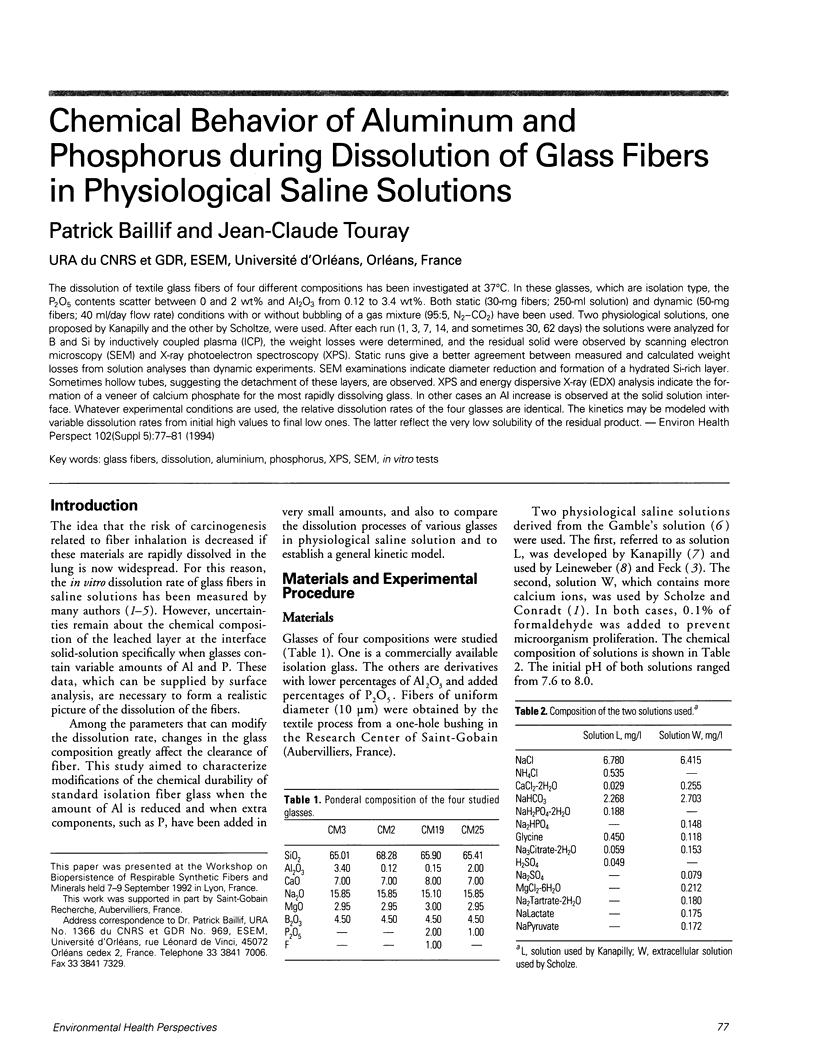
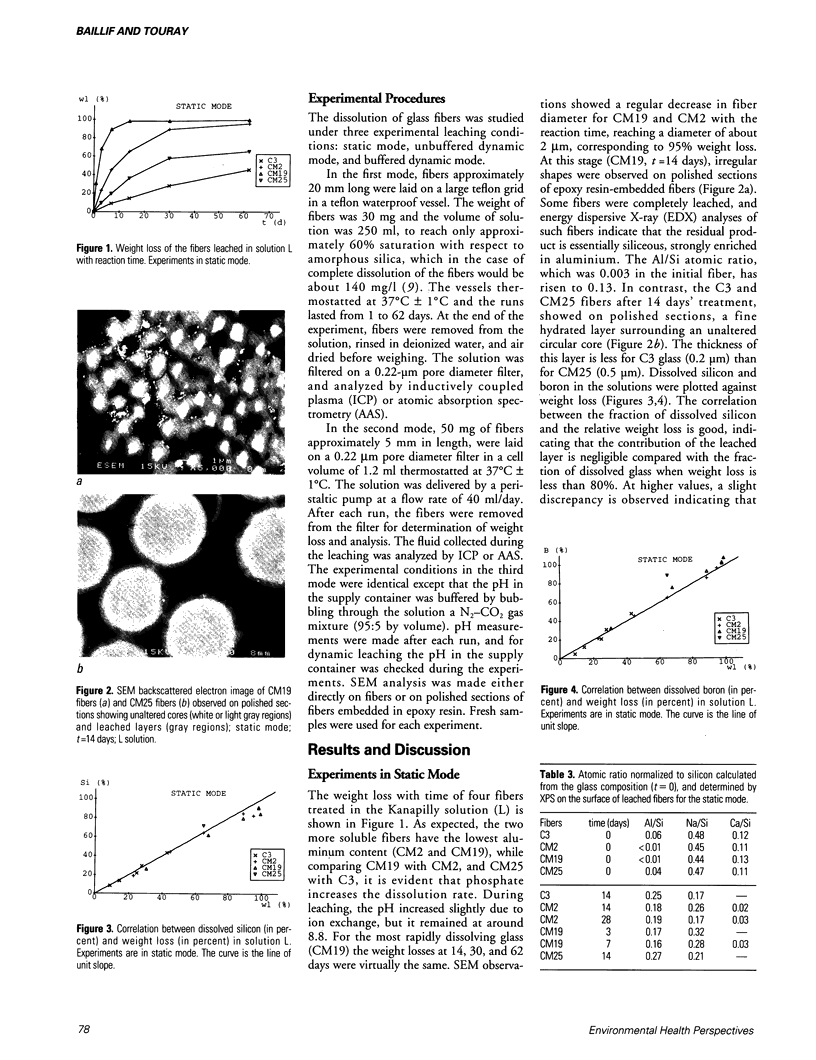
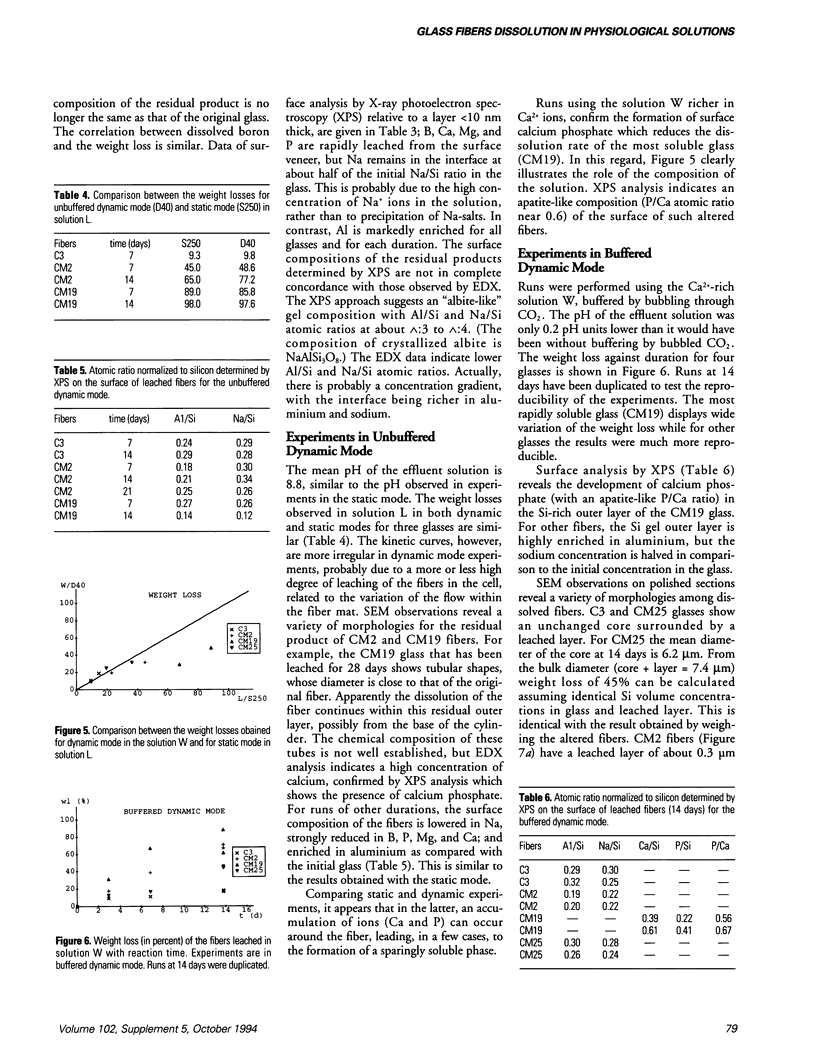
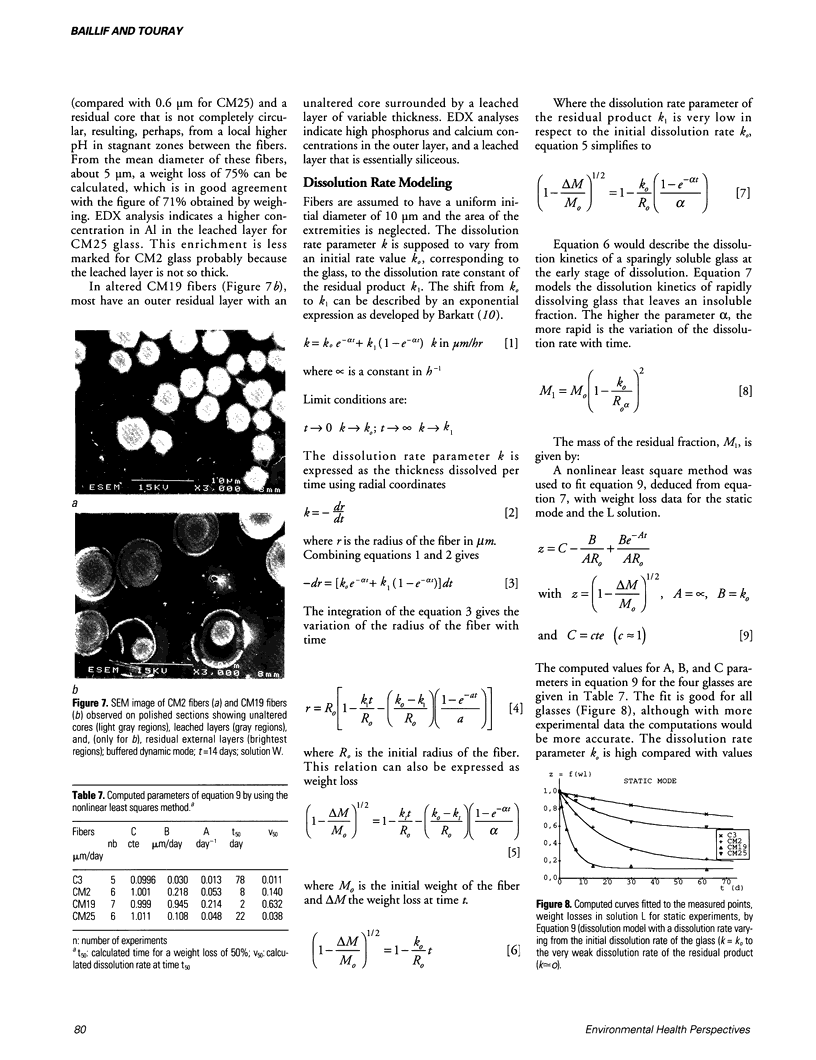
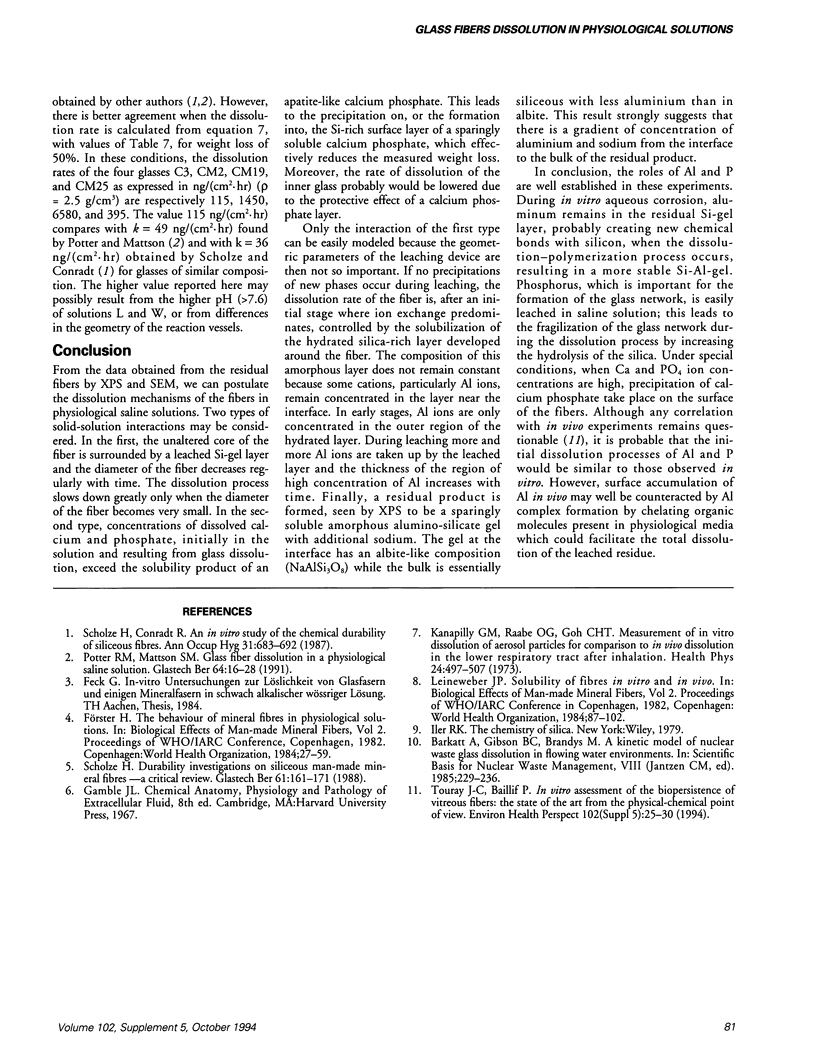
Images in this article
Selected References
These references are in PubMed. This may not be the complete list of references from this article.
- Kanapilly G. M., Raabe O. G., Goh C. H., Chimenti R. A. Measurement of in vitro dissolution of aerosol particles for comparison to in vivo dissolution in the lower respiratory tract after inhalation. Health Phys. 1973 May;24(5):497–507. doi: 10.1097/00004032-197305000-00004. [DOI] [PubMed] [Google Scholar]
- Touray J. C., Baillif P. In vitro assessment of the biopersistence of vitreous fibers: state of the art from the physical-chemical point of view. Environ Health Perspect. 1994 Oct;102 (Suppl 5):25–30. doi: 10.1289/ehp.94102s525. [DOI] [PMC free article] [PubMed] [Google Scholar]






